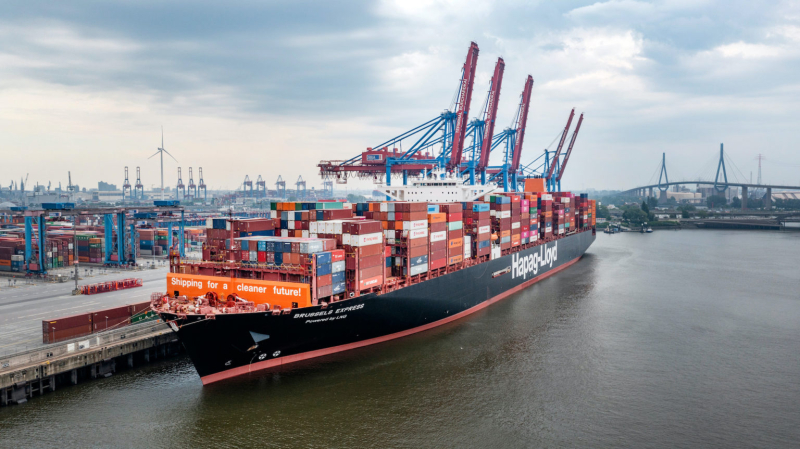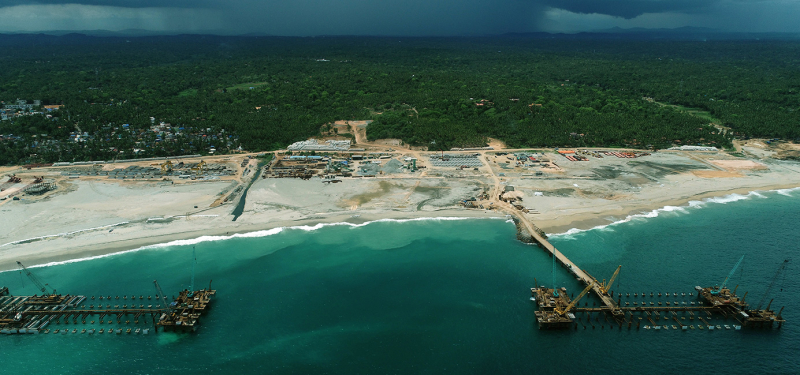Ever wondered why Singapore’s port is such a big deal in global trade? It’s not just about its location. Sure, being right there at the crossroads of major shipping lanes helps, but there’s more to the story. From smart policies to a strong legal system, Singapore has turned its port into a powerhouse. It’s a mix of history, leadership, and innovation that keeps it ahead of the game. Let’s dive into what makes this port tick and why it’s so successful.
Key Takeaways
- Singapore’s strategic location is important, but smart policies and leadership have been key to its port’s success.
- Strong institutions and a reliable legal system give investors confidence and stability.
- The transition from manufacturing to a service-based economy has kept Singapore competitive.
- Singapore’s focus on innovation and start-ups is shaping its economic future.
- Challenges like economic inequality and environmental concerns are being addressed for sustainable growth.
Strategic Geographic Position and Historical Foundations
The British Colonial Influence
Singapore’s success in global trade can be traced back to its colonial roots. The British established Singapore as a key trading post in the early 19th century, recognizing its strategic location along the major sea routes between the Indian Ocean and the South China Sea. This foresight laid the groundwork for Singapore’s development into a bustling port city. The influence of British colonialism was pivotal in shaping Singapore’s infrastructure, legal systems, and economic policies, which have continued to evolve over the years.
Comparison with Neighboring Countries
When comparing Singapore with its neighboring countries, its strategic position becomes even more apparent. While countries like Malaysia and Indonesia have larger land masses, Singapore’s compact size allows for efficient management and development of its port facilities. The island’s deep-water harbor and advanced logistics systems set it apart, enabling it to handle large volumes of cargo with speed and efficiency. This competitive edge is a significant factor in its status as a leading global trade hub.
Independence and Initial Challenges
Achieving independence in 1965, Singapore faced numerous challenges, including limited natural resources and a small domestic market. However, the nation turned these challenges into opportunities by focusing on building a robust trade network and attracting foreign investments. Through strategic planning and visionary leadership, Singapore transformed itself into a thriving port city. The emphasis on trade and economic development has been a cornerstone of its national policy, driving growth and prosperity.
Leadership and Visionary Policies
Lee Kuan Yew’s Role
Lee Kuan Yew, often seen as the architect of modern Singapore, played a pivotal role in shaping the nation’s future. His leadership style was unique, blending a touch of authoritarianism with a focus on citizens’ rights. This approach helped Singapore transition from a struggling nation into a thriving hub of commerce and industry. Lee’s vision was not just about immediate gains but long-term stability and prosperity. He understood that Singapore’s lack of natural resources meant that its people were its greatest asset. Thus, heavy investments in education and public housing were prioritized, laying a strong foundation for future growth.
Foreign Direct Investment Strategies
Lee’s government was proactive in attracting foreign direct investment (FDI), which was crucial for Singapore’s economic transformation. The strategy was simple yet effective: create a stable, business-friendly environment. This meant ensuring political stability, providing excellent infrastructure, and offering tax incentives to foreign companies. As a result, Singapore became a magnet for multinational corporations, eager to tap into the Asian market. The influx of foreign capital not only boosted the economy but also brought in new technologies and expertise, further enhancing Singapore’s global standing.
Economic Globalization and Innovation
Singapore’s embrace of globalization was not just about opening its doors to foreign businesses. It was about integrating into the global economy in a way that benefitted its citizens. The government focused on fostering innovation and entrepreneurship, recognizing that these were key drivers of economic growth. Initiatives were launched to support start-ups and encourage research and development. Singapore’s strategic location, combined with its vibrant economy, made it a natural hub for trade and innovation. The city-state’s success in navigating the complexities of globalization serves as a model for other nations looking to enhance their national strategies.
Strong Institutions and Rule of Law

Investor Confidence and Stability
Singapore’s success story is deeply rooted in its robust institutions that ensure the rule of law. These institutions have built a foundation of trust, allowing investors to confidently make long-term commitments without the fear of sudden regime changes or corrupt practices. This stability has been a magnet for foreign investments, making Singapore a go-to destination for global business ventures.
- Predictable Legal Environment: Investors appreciate the consistency and transparency in Singapore’s legal framework.
- Efficient Dispute Resolution: The legal system is designed to handle disputes swiftly, ensuring business operations remain uninterrupted.
- Corruption-Free Governance: With stringent anti-corruption laws, Singapore ranks high on global transparency indexes.
Legal Frameworks Supporting Trade
The legal frameworks in Singapore are tailored to support and enhance trade activities. The government has implemented policies that simplify trade procedures and reduce bureaucratic hurdles.
- Streamlined Customs Processes: Efficient customs operations facilitate smoother import and export activities.
- Trade Agreements: Singapore has numerous trade agreements that open doors to international markets.
- Intellectual Property Protection: Strong IP laws protect innovations, encouraging businesses to invest in new ideas.
Impact on Economic Growth
The synergy between strong institutions and the rule of law has had a profound impact on Singapore’s economic growth. By maintaining a stable and predictable environment, Singapore has attracted businesses from around the world, contributing to its rapid economic development.
In summary, Singapore’s unwavering commitment to strong institutions and the rule of law has been a cornerstone of its economic success, driving investor confidence, supporting trade, and fueling continuous growth.
Manufacturing and Economic Transformation
The Rise of the Shipyard Industry
Back in the late 1970s and early 80s, Singapore was making waves as a manufacturing powerhouse in Southeast Asia. The shipyard industry played a pivotal role in this transformation, creating synergies with its bustling trade port and burgeoning electronics manufacturing sector. Singapore quickly became a leader in producing hard disk drives, marking its place on the global manufacturing map. This industrial boom was part of a broader trend among the "Asian Tigers," which saw rapid economic growth driven by manufacturing. However, as the 1990s rolled in, competition from neighboring countries with lower labor costs began to bite into this sector.
Transition to Financial Services
As manufacturing faced challenges, Singapore didn’t just sit back. Instead, it pivoted towards becoming a financial hub. The country’s strong rule of law, combined with attractive tax and regulatory incentives, made it an ideal destination for big banks, consultancy firms, and insurance providers. This strategic shift not only compensated for the decline in manufacturing but arguably positioned Singapore for even greater success. Today, the service industry is the backbone of Singapore’s economy, supplying financial services across the region.
Role in the Asian Tigers
Singapore’s journey from a manufacturing giant to a service-driven economy is a testament to its adaptability and strategic foresight. It was one of the first countries in a largely rural Asia to industrialize, alongside the other "Asian Tigers." This group of nations experienced rapid economic growth through manufacturing, but Singapore’s ability to transition smoothly into a service-oriented economy set it apart. Its strategic location and thriving port continue to enhance its role in global trade, ensuring its place as a key player in the world’s economy.
Service Sector and Business Environment

Ease of Doing Business
Singapore shines as a beacon for entrepreneurs and corporations alike, being consistently ranked as one of the easiest places to do business. This status is no accident. It’s a result of streamlined regulations, transparent processes, and a pro-business government. The city-state’s strategic location in Asia also plays a significant role, making it a convenient hub for regional operations.
- Simple tax structures
- Quick and efficient business registration
- Minimal bureaucratic hurdles
Highly Qualified Workforce
A cornerstone of Singapore’s thriving service sector is its highly educated workforce. The country’s robust education system produces skilled professionals ready to meet the demands of a global economy. This talent pool is a magnet for multinational companies seeking expertise in finance, technology, and other sectors.
Financial Hub Development
Singapore’s transformation into a financial powerhouse is a testament to its forward-thinking policies. The city has attracted major banks, investment firms, and insurance companies, positioning itself as a leading financial hub in Asia. This development is supported by strong legal frameworks and a stable economic environment, fostering confidence among investors and businesses.
Innovative Economic Strategies
Investment in Start-ups
Singapore has become a magnet for start-ups, thanks to its supportive policies and strategic location. The government has set up various initiatives to boost entrepreneurship, such as the Startup SG program. This program offers funding, mentorship, and resources to budding entrepreneurs, making Singapore a vibrant hub for innovation. Venture capitalists have also been drawn to the city-state, further fueling the growth of new businesses. The emphasis on fostering a start-up culture has not only spurred economic growth but also positioned Singapore as a leader in technological innovation.
Banking Secrecy Policies
Singapore’s banking sector is renowned for its robust secrecy policies, which have attracted a considerable amount of foreign capital. While these policies have faced scrutiny, they continue to play a crucial role in maintaining Singapore’s status as a global financial center. The confidentiality offered by Singaporean banks is a significant draw for international investors seeking a secure and stable environment for their assets. However, the government has also taken steps to ensure compliance with international standards, balancing secrecy with transparency to avoid potential misuse.
Sustainable Development Initiatives
In recent years, Singapore has placed a strong emphasis on sustainable development. The government has introduced various initiatives aimed at reducing carbon emissions and promoting green technologies. For instance, the "30 by 30" policy framework aims to produce 30% of the country’s nutritional needs locally by 2030, reducing reliance on imports and enhancing food security. This approach not only supports environmental sustainability but also strengthens Singapore’s resilience against global supply chain disruptions. The focus on sustainability is a testament to Singapore’s forward-thinking approach, ensuring long-term economic stability and growth.
Defense and Economic Security
Military-Industrial Complex
Singapore’s military-industrial complex is a key cornerstone of its economic security. Over the years, the country has developed a robust defense sector that not only ensures its national security but also contributes significantly to its economy. ST Engineering, Singapore’s major defense contractor, is a prime example of this success. Ranked among the top defense companies globally, it showcases Singapore’s capability to produce sophisticated military technology. This homegrown industry reduces reliance on foreign military imports and boosts local technological innovation.
Economic Pillars Supporting Defense
The economic strength of Singapore plays a vital role in supporting its defense capabilities. The country has a well-structured economy that allows for substantial investment in defense without compromising other sectors. Here’s how Singapore’s economy supports its defense:
- Diversified Economy: By maintaining a diverse economic base, Singapore ensures steady revenue streams to fund defense projects.
- Strategic Trade Partnerships: These partnerships help secure resources and technology necessary for defense development.
- Financial Resilience: The country’s robust financial sector provides a cushion against economic downturns, ensuring consistent defense funding.
Water and Resource Management
Water security is a critical aspect of Singapore’s economic security strategy. Given its limited natural resources, Singapore has taken proactive steps to secure its water supply, which is crucial for both civilian and military needs. The country has invested heavily in desalination plants and water recycling technologies, reducing its dependency on external sources. This strategic approach not only ensures a stable water supply but also strengthens national resilience against external threats.
Challenges and Future Prospects
Addressing Economic Inequality
Singapore has long been a symbol of prosperity, but economic inequality is a growing concern. The wealth gap is widening, with income disparity becoming more visible. The government is working on policies to bridge this gap, but it’s a tough road. They are focusing on education and skill development to ensure everyone has a fair shot at success. Yet, balancing economic growth with social equity remains a challenge.
Traffic and Environmental Policies
Traffic congestion is a daily headache for many Singaporeans. The city-state’s limited land area makes it tricky to expand road networks. To tackle this, Singapore is investing in public transportation and exploring innovative solutions like car-sharing and electric vehicles. Environmental policies are also in the spotlight. Singapore aims to be a green city, with initiatives to reduce carbon emissions and promote sustainable living. However, achieving these goals requires significant effort and collaboration.
Maintaining Regional Stability
Situated in a dynamic region, Singapore faces the challenge of maintaining stability. Geopolitical tensions can affect its economy and security. Singapore’s approach is to engage in diplomacy and foster good relations with its neighbors. The country is also strengthening its defense capabilities to prepare for any uncertainties. As global dynamics shift, Singapore must remain vigilant and adaptable to ensure its continued prosperity.
Conclusion
Singapore’s journey to becoming a global trade powerhouse is nothing short of remarkable. From its strategic location to its robust institutions and innovative economic policies, every piece of the puzzle has played a part in its success. The city-state’s ability to adapt and evolve, whether through embracing globalization or shifting its economic focus from manufacturing to services, has been key. Singapore’s story is one of resilience and forward-thinking, proving that even a small nation can make a big impact on the world stage. It’s a testament to what can be achieved with vision, determination, and a bit of ingenuity.





























